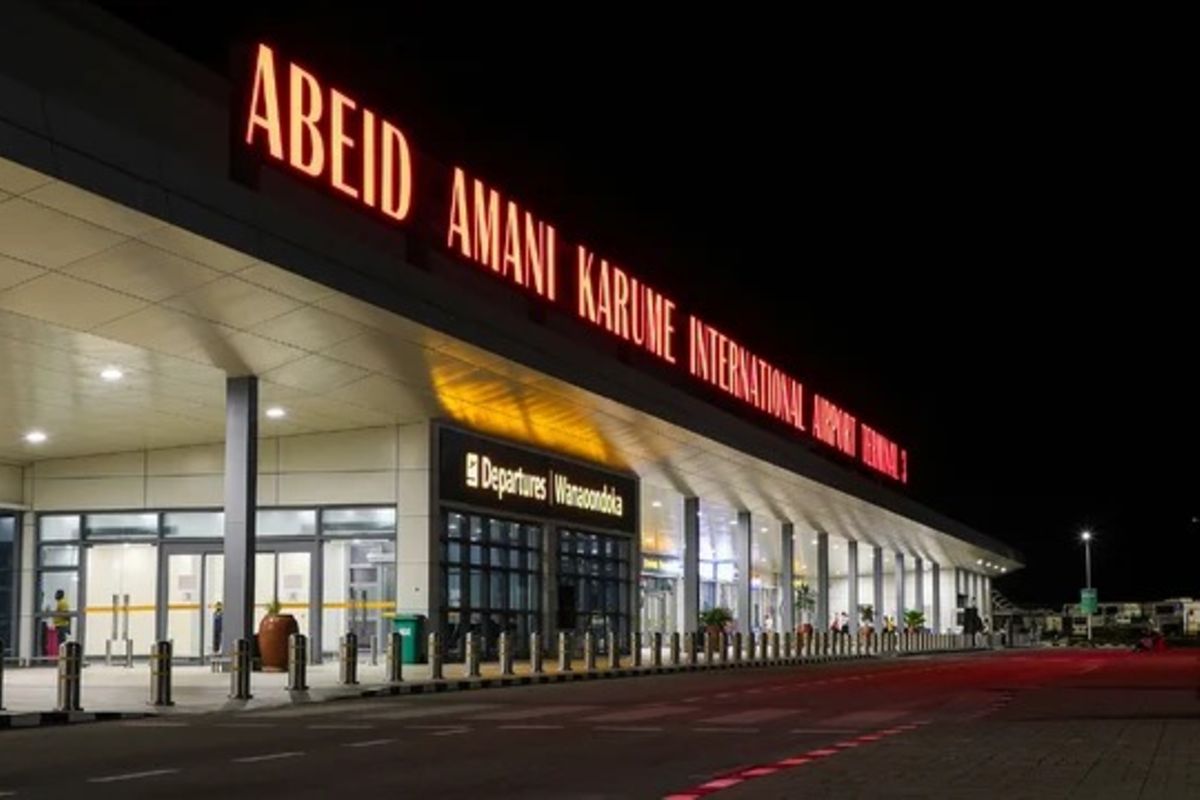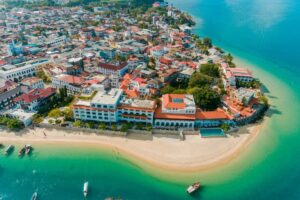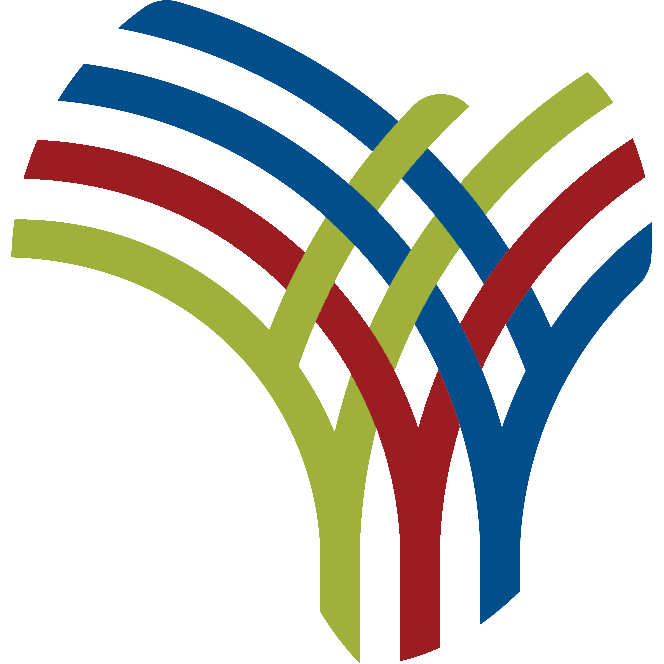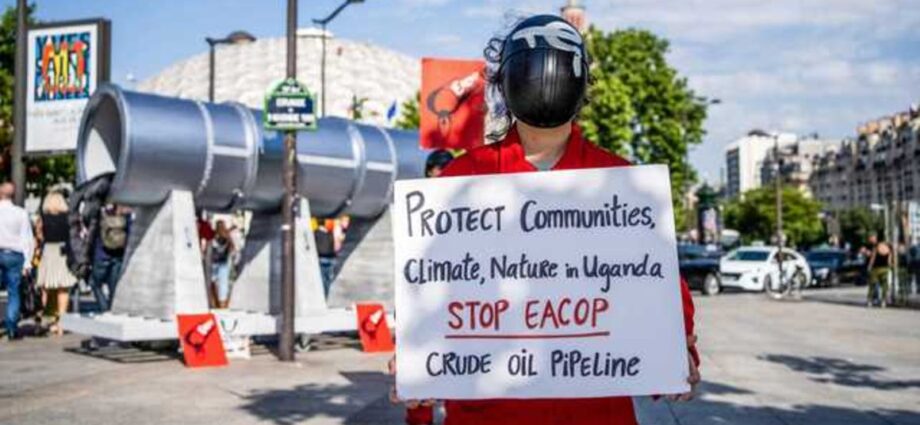International oil major TotalEnergies will on October 10 answer to charges of environmental and human rights abuse before the European Union parliament in Brussels in a new threat to the actualisation of its East African Crude Oil Pipeline (Eacop) and related upstream oil projects in Uganda’s Lake Albert region.
The European parliament has summoned chief executive Patrick Pouyanné to Brussels to justify the project that the lawmakers denounced last week.
He will appear before the parliamentary Committee on Environment, Food and Natural Resources, as well as that of Human Rights. The outcome will determine how the company navigates this latest crisis.
Hit by opposition from environmentalists on one side and beleaguered by financiers on the other, Total is now walking a tightrope as it pushes ahead with the Eacop.
Last week, the European Union parliament passed a resolution calling for the French oil major and its joint venture partners to delay the projects by one year, to address environmental and human rights concerns.
That decision was dismissed by Ugandan President Yoweri Museveni who said the country will look for alternatives if Total obeys the European Parliament.
The oil company, siding with President Museveni, has also vowed that the projects – now in the development phase – will not be halted.
As Total pondered how to navigate this crisis, President Museveni was on a warpath with the company, whose 62 percent stake makes it the biggest shareholder in Eacop. Uganda National Oil Corporation (UNOC) and Tanzania Petroleum Development Corporation own 15 a percent stake each, with China National Offshore Oil Corporation (CNOOC) owning eight percent shareholding.
First, while meeting ruling party MPs’ caucus on September 16, the president warned that should TotalEnergies cave in to pressure from the EU parliament and halt Eacop or pull out of the project agreement, he is ready to drag them to the international court of arbitration.
He later tweeted dismissing the EU parliament’s resolution but more significantly, he fired a warning shot at the French oil giant.
“We should remember that TotalEnergies convinced me about the pipeline idea; if they choose to listen to the EU parliament, we shall find someone else to work with,” read the tweet on September 16.
Total is a corporate citizen of the EU and could be swayed by the lawmakers.
However, it is obvious that the EU parliament’s resolution has shaken government officials in Uganda’s ministry of Energy, as well as those at TotalEnergies and the Eacop Company, who have all previously been very economic with information. They are all now scrambling to volunteer information about the project, either through media briefing or on their websites.
For example, the Eacop Company this week uploaded on its portal the status of compensation of project affected persons (PAPS) – a key tenet on which the EU censure is partly based, as well as the environmental and social impact assessment.
Before the Brussels resolution, this information was not available.
Displaced persons
With construction slated to start by end of this year, only 331 out of a total of 9,513 Eacop’s PAPs in Tanzania will be physically displaced and have been selected for replacement housing, but the website says “construction of these houses is ongoing” without giving completion timelines.
In Uganda, out of 3,648 PAPs, only 203 will be physically displaced, and majority of these have elected for replacement housing. These too are under construction according to the website, but no completion dates are given.
The EU parliament resolution puts the figure of those affected at more than 100,000 – mainly farmers, who are already being displaced from their lands without prior and fair compensation, a number that the resolution also quotes as putting communities at imminent risk of displacement.
Uganda government agencies are also sweating to dispel claims that Eacop will cross numerous protected ecosystems, which will be impacted by the heated pipe operating at 50 degrees Celsius. Officials counter that there only five small rivers and out of the 1,443km of the pipeline, only eight percent is a forest reserve.
Protected areas
The EU resolution called for an end to the extractive activities in protected and sensitive ecosystems, including the shores of Lake Albert, referring to the 132 wells that Total plans to dig into the Murchison Falls National Park.
“They will find it very hard to navigate past this,” said Omar Elmawi, co-ordinator of the Stop Eacop campaign, a network of organisations opposed to the project.
“This project has many problems. The biggest amongst them is the human rights violations,” he added.
EU parliament resolutions often bite those targeted if the European Council, the arm that implements policy, adopts them. So far, the council has said little.
TotalEnergies has kept a brave face in the face of the EU parliamentary resolution’s far reaching ramifications, which could put on hold the $10 billion investment.
The project was signed off in February this year by TotalEnergies with joint venture partners CNOOC and Uganda National Oil Company.
Since the resolution was passed on September 15, the French oil giant has played the sovereignty card, tweeting that Uganda and Tanzania are sovereign states that have made the strategic choice to exploit their natural resources to contribute to the development of their countries, and as such, are not bound by resolutions of the EU parliament.
“TotalEnergies recalls the significance of the Lake Albert/Eacop project for Uganda and Tanzania, and we shall do our utmost to ensure the project is carried out in an extremely exemplary manner in terms of transparency, shared prosperity, social and economic progress and sustainable development, including the environment and respect for human rights,” said Pouyanné.
“The EU resolution to stop the construction of pipeline is not binding on all nations in the world, Europe, European Commission or even a sovereign country like Uganda or Tanzania,” said Ali Ssekatawa, the director of Legal and Corporate Affairs at the Uganda Petroleum Authority.
“The progression of our project will go ahead, and even rigs that are needed to extract oil have reached Mombasa, and efforts are underway to bring them to Hoima and Buliisa so that they start operating,” Ssekatawa added.
Sticking with schedule
Indeed, executives of TotalEnergies and state-owned UNOC say the projects will proceed according to schedule, with site preparation for the two upstream oil production infrastructure at Kingfisher and Tilenga currently underway.
The joint venture partners – TotalEnergies, CNOOC and UNOC – target commercial production of oil and gas in 2025, and are prepared to defy EU calls to delay the project.
The projects main infrastructure is a $5 billion 1,443km long pipeline from Hoima in western Uganda to the Tanzania port of Tanga.
The EU resolution piles on a series of financial and reputational crises that Eacop faced as well as protests in several cities over the project. There were also delays and postponement due to tax disputes between Uganda and TotalEnergies.
For instance, the shareholders were expected to announce financiers that would put in the project’s debt financing before end of July 2022, according to Peter Muliisa, the chief legal and corporate affairs officer at UNOC.
But UNOC chief Proscovia Nabbanja says the shareholders are yet to reach financial close for the project and are still raising equity contributions, which will make up 40 percent of the required $5 billion, while the remaining chunk is debt financing, which “is proceeding as planned.”
She revealed that all International Finance Corporation standards on the environmental and social impact assessment, land acquisition process and technical standards – which are key to obtaining financing – have been achieved and verified by independent auditors hired by lenders.
Share this news
This Years Most Read News Stories

New lawsuit as Zanzibar airport controversy continues
Another company joins the list as they file a petition challenging the exclusive rights granted to Dnata by Zanzibar Airports Authority.Continue Reading

Zanzibar tourism investors alarmed by new mandatory insurance fee
Tourism investors in Zanzibar have voiced their concerns over the introduction of mandatory travel insurance, cautioning about its potential negative impact on the industry.Continue Reading

Tanzania: Exim to Raise Fund for Mental Health Facilities Upgrades

EXIM Bank to raise 300m/- over the next three years for financing essential services and infrastructure upgrades in mental health facilities.
The bank’s Head of Marketing and Communications Stanley Kafu unveiled this when introducing Exim Bima Festival 2024 as a platform for bringing together individuals, organisations and various sectors for raising the funds.
“Exim’s initiative aligns with the government’s broader goals to ensure that every citizen has access to quality healthcare, including mental health services,” he said.
The initiative, which is one of the events for celebrating the bank’s 27th anniversary is scheduled for Wednesday this week in Dar es Salaam.
Mr Kafu highlights that this year’s festival is not only about raising awareness of the importance of insurance in the society but also focuses on enhancing access to mental health services and improving the overall well-being of the nation.
Statistics from the Ministry of Health shows a staggering 82 per cent increase in mental health cases over the past decade.
Mental cases have risen from 386,358 in 2012 to 2,102,726 in 2021, making the need for mental health services more urgent than ever.
ALSO READ: NBC’s Saving Campaign Empowers Customers Nationwide
Unfortunately, the country’s ability to address this growing challenge is hindered by a shortage of mental health professionals, infrastructure, medical equipment and essential medication.
For example, out of the 28 regions in the country, only five have facilities that provide adequate mental health services.
The most affected group is the youth aged 15 to 39, who represent the nation’s workforce, underscoring the need for intensified efforts to safeguard this generation for Tanzania’s future well-being and development.
Mr Kafu said by improving mental health services, Exim aims to contribute to the creation of a network of communities that can access care quickly and affordably.
Exim Insurance Department Manager Tike Mwakyoma said they are appreciating the support from partners in the insurance industry, who have stood by them since the last festival.
“Let’s continue this unity for the development of all Tanzanians and our nation as a whole,” the manager said.
Source: allafrica.com











